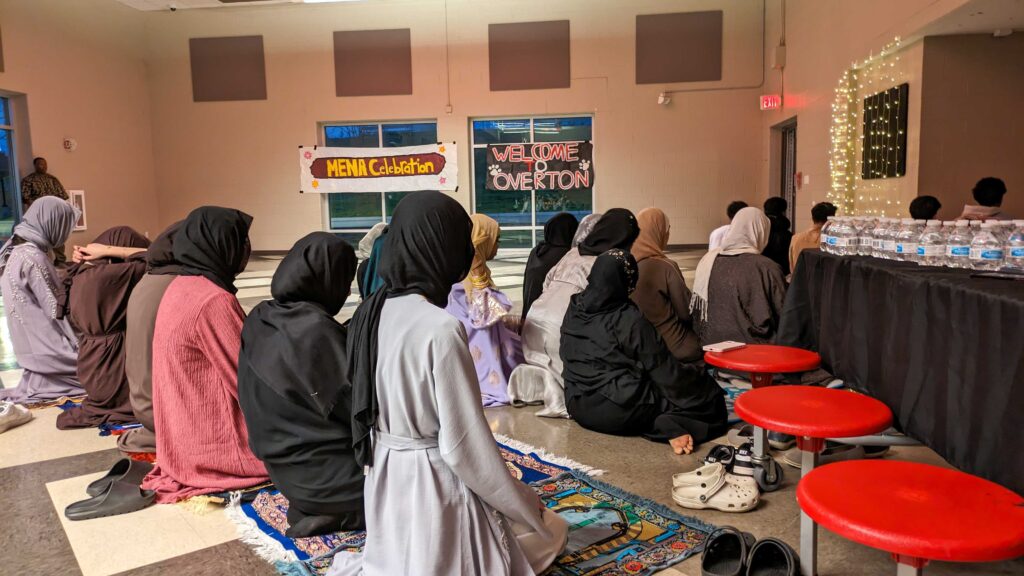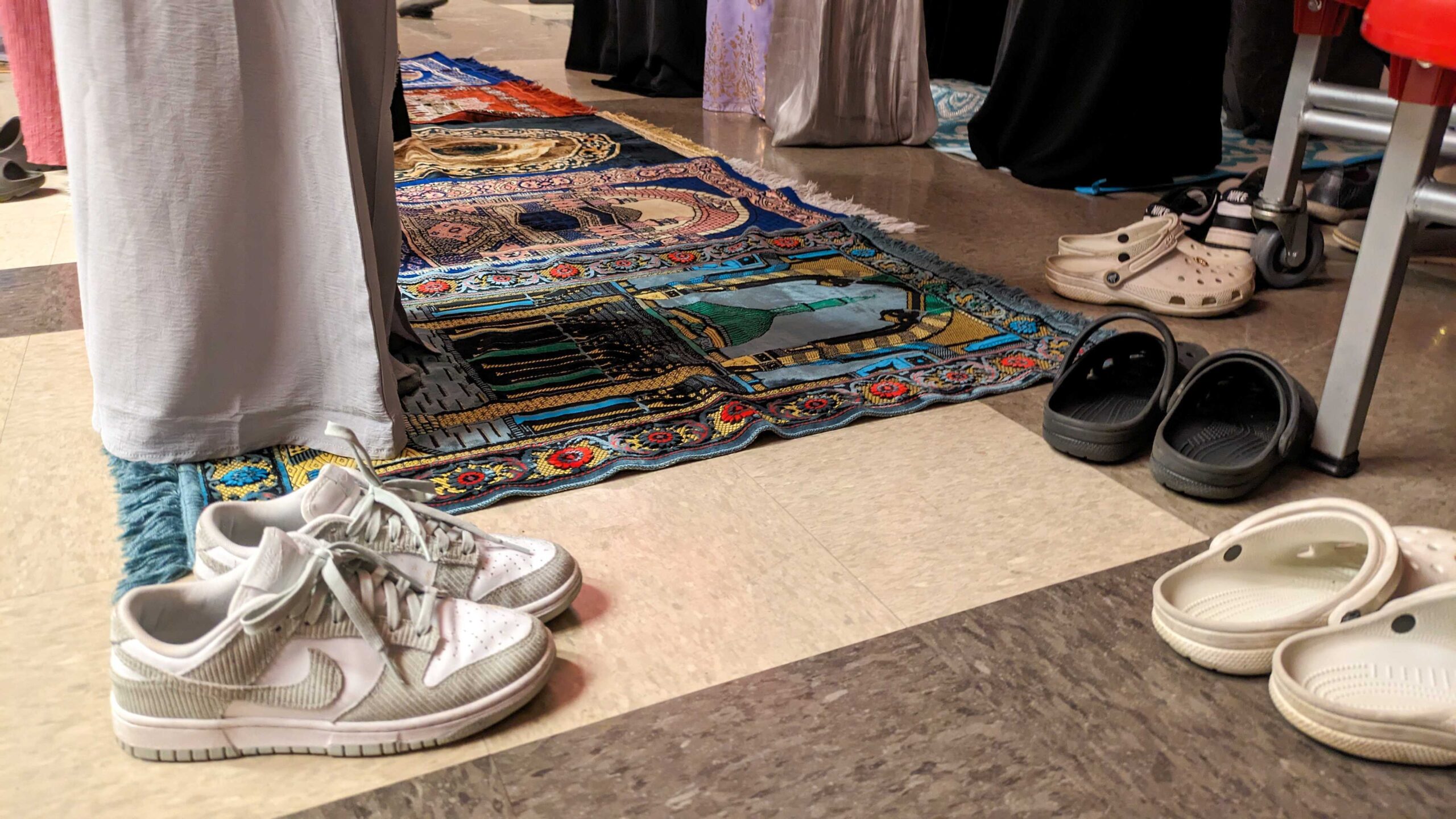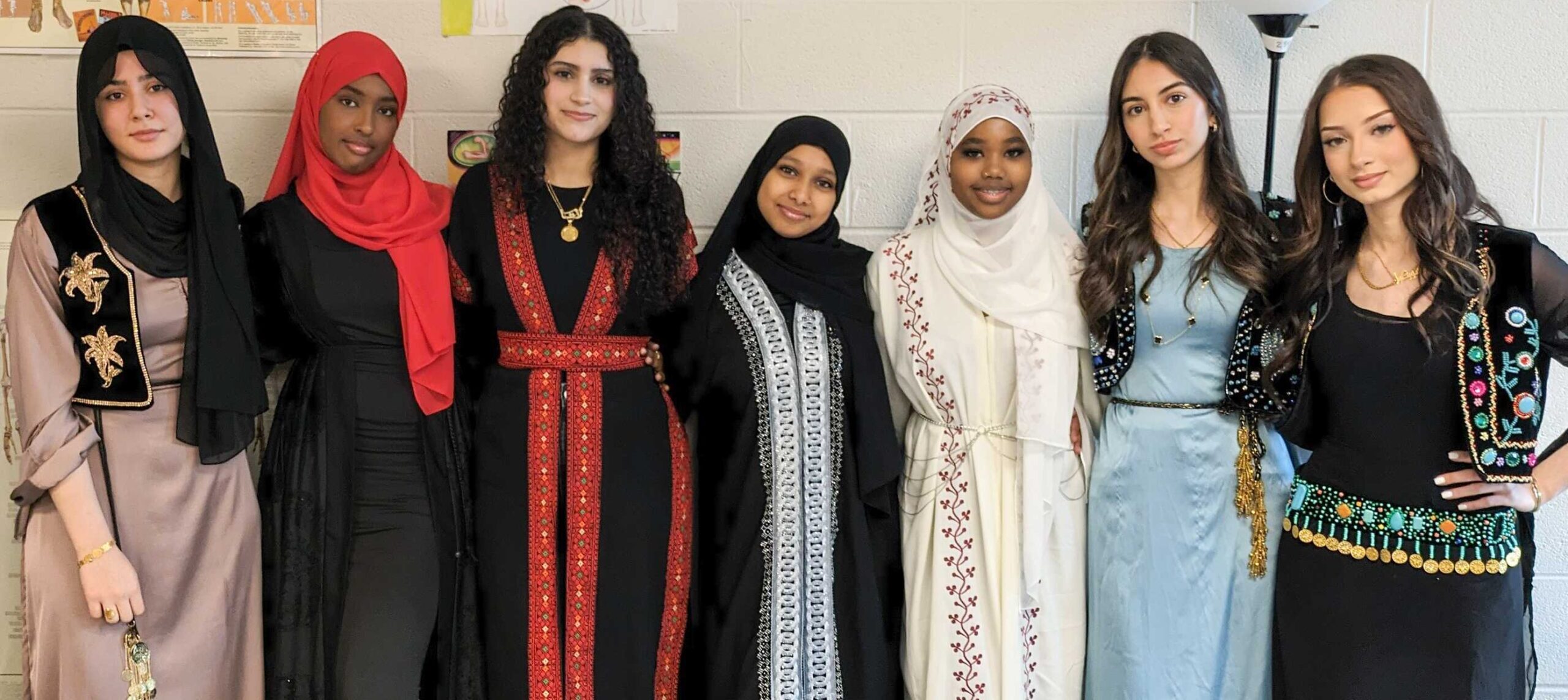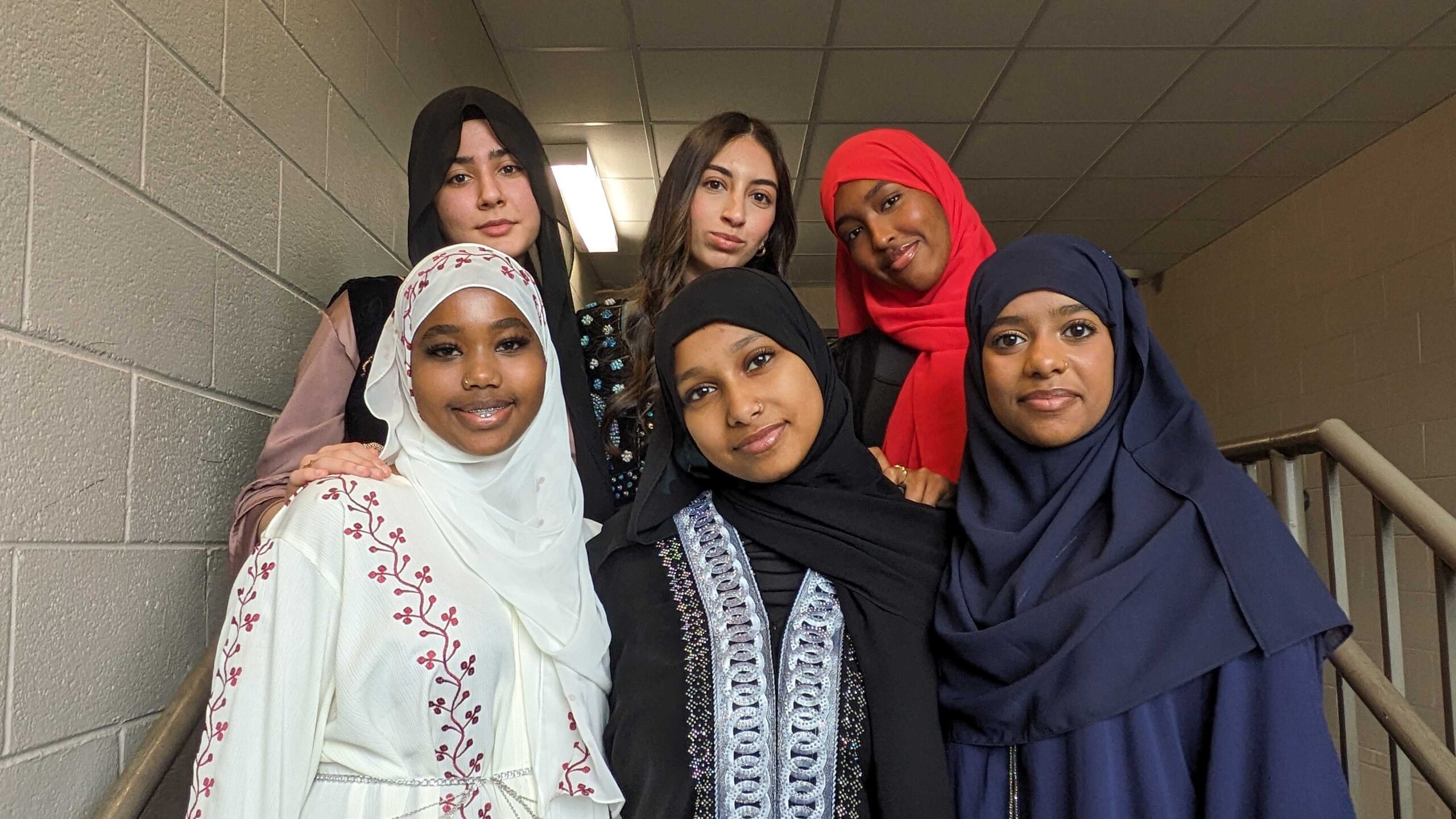
The Muslim holy month of Ramadan ends this week. This year, students at Overton High School in South Nashville worked with administration to provide more intentional spaces for students to fast and pray.
“We have so many different students here with so many different backgrounds,” said Principal Kelby Garner, “but I need them to all know that they belong.”
Garner said that’s an intentional choice, based on the Metro Nashville Public Schools mantra: every student known.
“We embody that at Overton,” Garner said. Last week, the school highlighted Middle Eastern and North African culture. And on Friday, Overton’s Student Government Association and newly formed Muslim Student Association teamed up to host an iftar event for families and staff of all faith backgrounds.
Students shared with WPLN what the changes have meant to them.
Spaces for fasting and prayer
In previous years, Overton High School made classrooms available for fasting students who didn’t want to go to the cafeteria. That continued this year, along with a new system allowing students to do their midday prayer. In the past, students say that organizing prayer during school was difficult because some students would use it as an opportunity to skip classes. This year, the school implemented electronic hall passes for students who signed up for the prayers. There’s also a staff member who supervises prayer time, ensuring that students get back to class promptly after they’ve finished.
“I think having a space to go pray or go when you’re not eating, it’s really important, and it’s important to me because some people can’t get home on time to catch the prayer. So having a place to come down and pray, it not only creates a community, creates a place for us to connect even within school.” — Waad Akasha
“Having this just gives Muslim students a space to come together, learn from each other and just gain from their religion.” — Marwo Abdirahman
 Alexis Marshall WPLN News
Alexis Marshall WPLN NewsStudents and families pray at John Overton High School in Nashville.
MENA celebration week
In addition to offering spaces for Muslim students to observe Ramadan, Overton High School put together a week of themed days to recognize Middle Eastern and North African, or MENA, culture. On Thursday, WPLN spoke to several students dressed in culturally significant clothing.
“My traditional clothing from Jordan is called a thobe, and it’s just hand-stitched patterns on a long dress … Across the Middle East, a few countries like the Levant countries have their own version of a thobe, but each country has their own specific pattern. And these are all hand-sewn, so they take a lot of work.” — Lana Alomary
“So today, I’m wearing abaya. It’s not just in Somali culture. Like, Arabs wear it. Multiple Muslim countries wear it. But it’s to represent modesty, whether it’s in the mosques, on Eid, to the masjid and to pray. There’s different colors, different designs.” — Ayaan Mohamed
“I’m from Sudan, and you don’t get to wear these type of clothes a lot. So having this week to show off our culture and everything we wear and show everyone else what we can bring.” — Waad Akasha
“As a Kurdish person who’s living in Nashville, we have a huge community here — also in this school as well. But, as we’re living in America, we don’t get a lot of chances to wear our traditional clothing or be recognized or teach other people about our culture. So I feel like when we’re all gathered together wearing these clothes, we can teach people more about ourselves and connect with other people who have similar traditions, similar clothing.” — Sorgul Sharanshi
 Alexis Marshall WPLN News
Alexis Marshall WPLN NewsMuslim students at John Overton High School pose for a photo while wearing traditional attire. From left Payven Tovi, Ayaan Mohamed, Lana Alomary, Waad Akasha, Marwo Abdirahman, Peri Tovi and Sorgul Sharanshi.
Community iftar
MSA and SGA partnered to throw a community iftar on Friday, April 5. Members of MSA shared a presentation explaining Ramadan and myth-busting some common misconceptions about the holy month. As the sun set, Waad Akasha explained to attendees how Muslims break their fast with a date, following in the tradition of the prophet Mohammed. Alomary explained the ritual washing of the face, arms, hands and feet before prayer. Then, people lined up their mats and began the prayer. Muslim students said they hoped the event was informative for those who don’t practice Islam.
“I hope they learn that this is not, like, a sad time for us. Whenever I tell people I’m fasting … they’re like, ‘Oh my God, how can you do that? That’s horrible.’ And I just want them to learn that, no, it’s not a horrible time for us. Like, we look forward to this month.” — Peri Tovi
“I feel like tonight went really well, and everybody hopefully felt included. And they got to participate, and they learned a lot about Ramadan. And hopefully, next year, they can teach someone else about it.” — Noran Akasha
This slideshow requires JavaScript.
On this year’s Ramadan
Students shared their takeaways from this year’s Ramadan, reflecting on what the holy month means to them. Students shared lessons they’ve learned, and what they’ll be taking with them into the rest of the year.
“As a Muslim, Ramadan is a time I look forward to every year, even though it starts off hard with the fasting. It’s a time where I’m excited to grow my spiritual journey with God and get closer to God. And I love being able to, like, help with charity and just read the Quran every night. And it’s a good reset every year to have because I’ll fall maybe into some bad habits that during Ramadan I can go back and fix.” — Lana Alomary
“During this month, making all my five prayers — doing the sunnah prayer, tarawih and all that — it has just made me feel closer to Allah. So after Ramadan, I want to just continue, make sure I stay on top of my prayers because, without my prayers, I feel like I wouldn’t be happy inside.” — Marwo Abdirahman
“What I want to take away from this Ramadan is accountability. And I want to be accountable for my bad actions and to learn from them and to just grow as a person — because I know that nobody’s perfect, but I try my best to be.” — Payven Tovi
 Alexis Marshall WPLN News
Alexis Marshall WPLN NewsMuslim students at John Overton High School pose for a photo in the stairwell. Top row from left: Payven Tovi, Peri Tovi and Ayaan Mohamed. Bottom row from left: Marwo Abdirahman, Waad Akasha and Noran Akasha.

